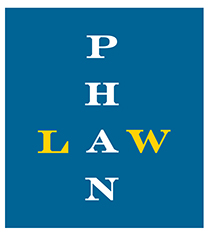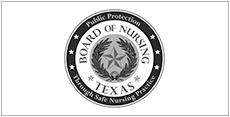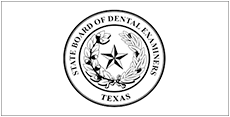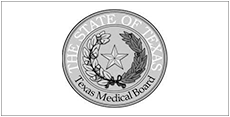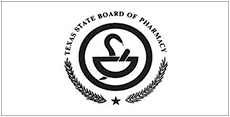Received a formal Texas Board Complaint or Disciplinary Action?
Talk to us! With over 24 years of experience, and intimate working knowledge of the Texas Board of Nursing (BON)and the Texas State Board of Dental Examiners (TSBDE), we can help you!
Contact Us
Reviews





















Patient, Kind and Knowledgeable
Phong and his team were fantastic. He was kind, patient, and very knowledgeable. He guided me through the process with compassion and expertise. My issue was resolved favorably, and I remain forever grateful for his professional support and guidance.
A.B.
Completely Exonerated
Mr. Phan calmly and professionally guided me through every step of a very stressful situation. He is extremely knowledgeable and attentive, and I was completely exonerated thanks to Mr. Phan’s assistance. I highly recommend his services if you are in need.
R.D.
Honest and Open
Mr. Phan’s calm demeanor helped me remain calm through a very stressful time. He was honest and open each step of the way. He thoroughly reviewed all records and planned the best course of action.
L.O.
Exceptional Attorney
Mr. Phan is an exceptional attorney. He is experienced and knowledgeable, and he knows how to utilize them effectively.
B. A.
Attentive and Patient
Mr. Phong is very attentive and patient. He took his time to understand the situation, and he guided me at every step. His knowledge, expertise, and professionalism are a testament to write about. Thank you, Mr. Phong.
J.W.
Best Possible Outcome
This attorney knows what he is doing and is the best! From his communication and how hard he works for you to get the best possible outcome, you’re in great hands. Thank you and your team so much!
N. M.
The Right People to Handle my Case
When your career and license are on the line, hire the right Attorney. Mr. Phan and his team are well-versed in Professional License Defense and will guide you judiciously (and keep you informed) through your legal issues every step of the way. I hired him to handle a legal issue with the Texas State Board of Nursing; I am glad I came to the right people to handle my case. I am extremely grateful and appreciate all the hard work; it’s been quite a journey, and I am grateful for the final outcome. Thanks to you and your team, a big weight has been lifted off my shoulders.
X. M.
Calm, Empathetic and Experienced
I hired Mr. Phan to help me during an extremely stressful time. I was in a situation where I had to deal with the Texas State Board of Dental Examiners (TSBDE), and Mr. Phan and his team guided me through every step of the process. His calm and empathetic demeanor helped relieve most of my anxiety, and his knowledge and experience allowed me to resolve my matter with a favorable outcome. I found him to be an invaluable resource, and I would highly recommend Mr. Phan to anyone looking for excellent representation.
G. T.
Personable and Professional
I worked with the Phan Law firm for a period of four months while Mr. Phan represented me in a legal matter. Mr. Phan was very responsive and responded to my emails within 24 hours. He was both personable and professional and communicated with me regularly to keep me posted regarding the progress he was making. I highly recommend Mr. Phan and his team.
D. S.
Very Attentive to Details
Mr. Phan is a very professional Lawyer and very attentive to details. He will explain to you what he can do and not do from the beginning. Very detailed itemized bills and very helpful assistance from Ms. Sarah. I would recommend Mr. Phan and his law firm to anyone seeking help with the Texas State Board of Nursing. He has very good connections there and knows his way around and who to speak to. With his previous experience working there, it helps him guide you i the right direction needed for your case.
C. R.
The Best Attorney
Phan Law Firm is the best attorney you can have. My issue was solved by this lawyer in half time, for half the money. I advise everyone to call this firm about your problem.
H. K.
Very Compassionate and Professional
I am a registered nurse, and I had a unique situation with BON. I was seeking legal counseling. At that point in time, I was very stressed out and vulnerable, in addition to feeling I may lose my nursing license and my life would be over. After speaking with Phan, Phan gave me the reassurance I needed to make it through the next 2-3 years and that I would not lose my nursing license. Phan is very compassionate and professional.
I felt Phan was on my side and understood how much a nurse’s license means to a nurse, and he would fight for my license as if it were his. Phan’s knowledge and experience just in the area of nursing and BON is extraordinary and over the top. I was able to tell Phan knew what was needed in regard to dealing with BON and what was expected of me.
The letters sent to the BON were laid out very professional, detailed, and hit the points needed. I would not have been able to communicate with the BON like Phan did. Phan’s communication with me was excellent; he was always straightforward with me on everything that was happening, for example, any communication with BON and anything that was needed from me. Phan kept me updated on everything and continuously communicated with me throughout his service with me. Phan always followed up, and his response times for anything were very quick. Phan was always available for me. Phan always iterated he was there for me, on my side, and would fight for me, and I felt he did.
I was kept informed and updated on anything and everything. I never doubted anything Phan did for me. I am very appreciative of what Phan did for me. I was lucky to have Phan represent me. I wish no other nurses would have to go through a situation like mine or have to deal with BON, but if any nurse did, I would highly recommend Phan/The Phan Law Firm. Phan deserves more the five stars and did more than 110% for me. The hard/excellent work Phan did for me has put me in a better place, I have a low level of stress, and my name is just another name to BON.
J. P.
Very Pleased
Mr. Phan did a wonderful job as an attorney. I was very pleased with all services provided and would give anyone requesting his services a 10 star review and to please use him.
R. D.
Heartfelt Gratitude
Phong is a great and fantastic attorney. He is a good listener, very detailed, keeps to appointments, and a fighter with a compassionate heart. His wealth of knowledge and experience helped me navigate through this nerve-wracking period. Every step of the way, Phong explained to me the details of the case, what questions to expect, and what the board inferred from my case, made me aware of the facts in my case and how to answer questions, and he prepared me well for court. He was able to settle my case through mediation and achieved a dismissal.
His thorough, aggressive wealth of knowledge and education cannot be underestimated. Words cannot express the heartfelt gratitude I owe him for successfully bringing my case to a dismissal. I highly recommend him.
The Do It All Twins
Careful Listener that Successfully Defended My Case
When a complaint was filed with Texas BON, I thought I would explain my situation to Texas BON nurses, and they would understand. I did not know that the Texas Board of Nurses uses criminal justice professionals using criminal justice procedures to investigate all complaints. I did not know that the Texas BON would be so sternly opposed to any explanation. I did not know that the Texas BON would be so unwavering and relentless in their prosecution. The complaint lodged against me was complicated, and the stress of defending myself alone was debilitating. That is until I met Mr. Phan at the Phan Law Firm. Mr. Phan understands the Texas BON. He listened carefully and successfully defended my case. I owe him and his expertise a debt of gratitude and I am more than happy to share my story with anyone who asks.
T. C.
If there is a way, Mr. Phan will find it!
Mr. Phan is a fighter! He never gives up on a case, and if there is a way, he will find it!
D. N.
Worth Every Penny
I am a Registered Nurse with several years of experience, and I was recently involved in a situation in which I never thought I would ever be. My professional life was at stake, and with it, my reputation and my family’s economic stability. I literally was about to throw the towel without putting up a fight when I came across “The Professional License Firm of Texas”.
I got a pleasant surprise when Mr. Phan himself answered my first phone call. He patiently and empathetically listened to my description of the case and gave me the peace of mind I sorely needed. He was very professional in every interaction, always positive and optimistic, and made me feel at ease even though I was going through the toughest times of my life. Thanks to Mr. Phan’s phenomenal defense of my case, it ended with a very satisfactory resolution. It was pricey, but honestly, it was worth every penny invested. I will call them again if I ever need them, and I am very confident in recommending this firm and its professionals, particularly Mr. Phan, to whoever needs their services.
M.P.
Exceptional Legal Prowess and Knowledge
Phong has represented me in a couple of license defense matters over many years. He became more than a defense attorney, more than a professional service provider, he became a friend because he, without question, delivers his exceptional legal prowess and knowledge with that special quality of humanity, empathy. His guidance and personal interest in my circumstances have been much more than fulfilling a legal contract for services; he has demonstrated such strategic and insightful assistance throughout these two rather protracted cases of mine as to assure my confidence in the process.
It is my honor and privilege to have the opportunity to provide feedback to him because I believe it is important for him to know just how much his kind of professional service means to me as both a client and friend. I’m very confident in recommending his firm’s service to all in need.
J.F.
A Big Win for a Tough Case
I am a registered nurse; Mr. Phan helped me out with a very serious issue with the Texas Board of Nursing. A former patient reported me to the management of the hospital where I was working. Management forwarded the complaint to the Texas Board of Nursing, and boundary/ HIPPA violations were filed against me.
After two long years, my options appeared limited, and the likelihood of a satisfactory resolution seemed nigh on impossible, but Mr. Phan got me sorted out. He fought the board so hard from emergency revocation/voluntary surrender to probation with remedial classes. A big win. I am very grateful for Mr. Phan’s service, and I recommend him for tough cases.
S. D.
Complete Dismissal!
Mr. Phan is a very knowledgeable attorney who assisted me in defending my professional licensure against an unfounded claim. Mr. Phan provided me with an ironclad response to the Licensure Board, which resulted in a complete dismissal of the claim. He is the best!
F.C.
Hire them, seriously – you will not regret it. Complete dismissal.
Phong is incredibly smart and talented and knows exactly how the Board operates and what to do. In my initial search, I had signed on with The Bertolino Group, and they majorly screwed up my case and charged me outrageous amounts of money to do so. Once I saw all the mistakes that they submitted to the board, I quickly canceled with them and talked to Mr. Phan. He was so gracious and apologized for the unprofessionalism of my previous counsel. He got straight to work on my case and corrected all the errors that the Bertolino Group made.
His counsel was beyond wise, and I finally felt like I was being defended by someone who not only cared but also knew exactly what to do, how the board thought, and how to react.
The board didn’t look at my case for over 2 1/2 years [talk about stress], and Phong encouraged me to be patient, so I was. When they finally reviewed my case, they dismissed it!
Phong and Sarah stayed in contact with me about my case and were straightforward with their pricing. I never got billed for nonsense or unexpected things like I did with the Bertolino Group. They are honest and incredible at their jobs!
Hire them, seriously – you will not regret it. Even if my case had turned out differently, I felt confident the entire time that Phong was fighting my case as if it were his own. I never felt that way with the Bertolino Group.
The hardest part about picking a law firm to help defend you is not knowing if you can actually trust them to fight hard and smart for your case. You can trust The Phan Law Firm. Phong tells it like it is, doesn’t waste time, is concise and methodical, and his firm is transparent. He has your back.
D.C.
Case Studies
- T.C. versus Texas Board of Nursing (BON)
- T.B. versus Texas Board of Nursing (BON)
- D.P. vs. Texas Medical Board
- D.O. versus Texas Medical Board
- S.S. versus Texas Medical Board
- J.G. versus Texas State Board of Dental Examiners (TSBDE)
- N.E. versus Texas Board of Pharmacy
- V.W. versus Texas Board of Occupational Therapy Examiners
- B.A. versus Texas Department of State Health Services (Massage Therapy Licensing)
- M. versus Texas Department of Licensing and Regulation
Meet Our Attorney
 Texas Board Defense, Professional License Defense, Administrative Law
Texas Board Defense, Professional License Defense, Administrative Law
